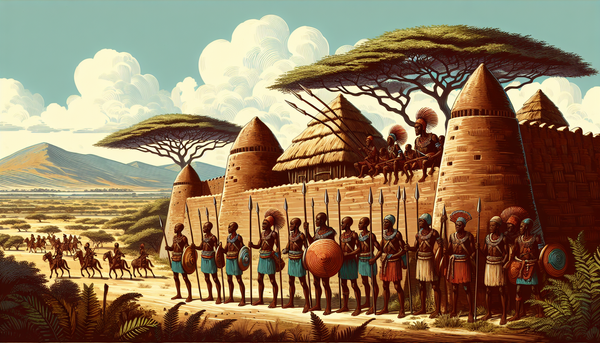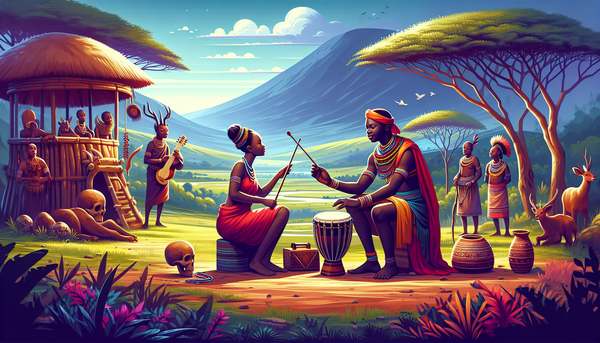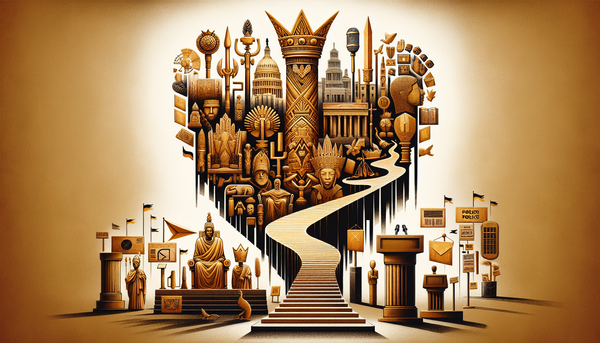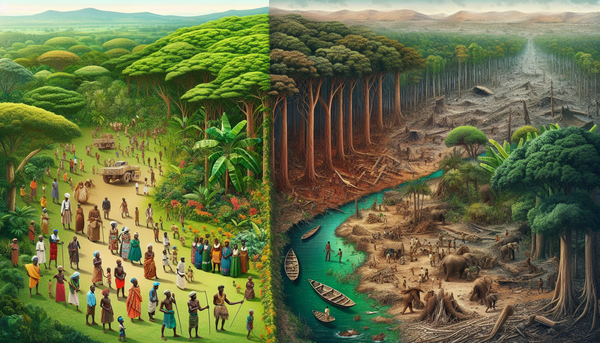Global Reactions to Major African Historical Events
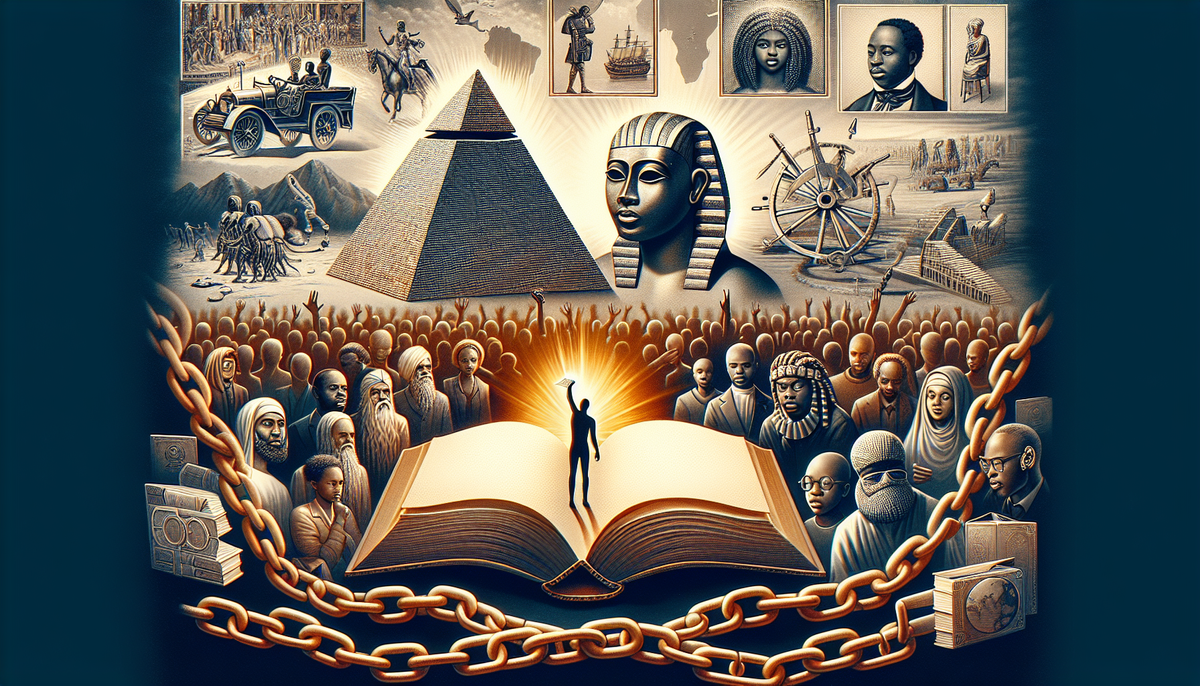
Overview of Africa's Pivotal Moments in History
Africa's history is rich and multifaceted, marked by significant events that have shaped not only the continent but the world. From ancient kingdoms to colonial transformations, pivotal moments have defined the African experience. The rise and fall of powerful empires, such as the Kingdom of Mali and the Great Zimbabwe, showcase Africa's early contributions to civilization, trade, and culture.
The impact of European colonialism in the late 19th century forever altered the course of African societies. The Berlin Conference of 1884-85 facilitated the scramble for Africa, leading to the exploitation of its resources and people. This era stimulated resistance movements and laid the groundwork for the fight for independence throughout the mid-20th century.
The end of apartheid in South Africa marked another critical juncture, symbolizing the global struggle for human rights and equality. Meanwhile, events like the Rwandan Genocide drew attention to international responsibilities towards humanitarian crises. As the continent moved into the 21st century, ongoing challenges and triumphs continue to shape Africa's narrative, prompting global reactions and fostering connections across nations. Understanding these moments is essential for grasping the complexities of contemporary issues faced by African nations today.
Colonialism and its Lasting Impact on the Continent
Colonialism profoundly transformed African societies, shaping their political, economic, and cultural landscapes. Initiated in the late 19th century, European powers partitioned the continent with little regard for indigenous populations, resulting in arbitrary borders that often grouped diverse ethnicities and cultures into single nations. This set the stage for conflicts that persist today.
The exploitation of Africa's rich resources fueled industrial advancements in Europe while undermining local economies. Indigenous systems of governance were dismantled, and traditional practices were replaced with European values and governance structures. The consequences were dire, leading to the erosion of cultural identities and significant social fragmentation.
Post-colonial states inherited a legacy of instability, characterized by power struggles and economic dependency on foreign nations. Many countries faced challenges in nation-building, grappling with issues of identity and governance as they navigated the aftermath of colonial rule. Additionally, colonial education systems prioritized Western knowledge, leaving a gap in the preservation of indigenous knowledge and languages.
While African nations have made strides towards self-determination, the long shadows of colonialism continue to affect socio-economic development and international relations. Understanding this legacy is crucial for addressing contemporary challenges and fostering a more equitable future for the continent.
Apartheid in South Africa: Worldwide Outcry and Support for Liberation
Apartheid, the system of institutionalized racial segregation and discrimination in South Africa, emerged in 1948, profoundly affecting the lives of millions. The laws created stark divisions between the white minority and the non-white majority, limiting access to education, healthcare, and political representation for Black South Africans. As the oppressive regime took hold, it sparked both domestic resistance and international condemnation.
Global awareness of apartheid's brutal realities grew throughout the 1960s and 1970s, fueled by powerful activism, media coverage, and reports of violence against anti-apartheid leaders. Figures like Nelson Mandela, who became a symbol of the struggle, garnered international support and solidarity. Grassroots movements, along with organizations such as the African National Congress (ANC), fought tirelessly against the regime within South Africa.
The global community rallied behind anti-apartheid efforts through various means, including economic sanctions, boycotts, and cultural movements. High-profile figures, such as Desmond Tutu and notable celebrities, used their platforms to raise awareness and advocate for change. These collective efforts ultimately pressured the South African government to dismantle apartheid in the early 1990s, leading to Nelson Mandela’s historic election in 1994. The struggle against apartheid remains a powerful testament to the impact of global activism in the face of injustice.
The Rwandan Genocide and International Response
The Rwandan Genocide, which unfolded in 1994, remains one of the darkest chapters in modern history. Over the span of approximately 100 days, an estimated 800,000 Tutsis and moderate Hutus were brutally murdered by the Hutu-led government and extremist militia groups, known as the Interahamwe. The genocide was fueled by long-standing ethnic tensions, exacerbated by colonial policies that favored one group over another, and was ignited following the assassination of Hutu President Juvénal Habyarimana.
Despite clear warnings and evidence of escalating violence, the international community largely failed to intervene effectively. The United Nations peacekeeping mission already present in Rwanda was severely limited in its mandate and personnel, leading to inadequate protection for civilians. While some nations and humanitarian organizations attempted to provide assistance, the response was criticized as slow and insufficient.
In the aftermath, the failure to prevent the genocide prompted global outrage and led to significant reflection on the responsibilities of nations to protect vulnerable populations. The term "genocide" became a focal point in international law, prompting reforms in intervention policies. Subsequent efforts to promote reconciliation and justice in Rwanda, including the establishment of Gacaca courts, highlighted the importance of addressing the roots of conflict and fostering healing among communities.
Nelson Mandela’s Release and Global Celebration
Nelson Mandela's release from Victor Verster Prison on February 11, 1990, marked a historic turning point not only for South Africa but for the global fight against oppression. Imprisoned for 27 years due to his anti-apartheid activism, Mandela became a symbol of resilience and hope. His release was met with jubilation both domestically and internationally, as millions of people celebrated the end of a regime that had long oppressed the Black majority in South Africa.
The world watched as Mandela, with grace and dignity, emerged and addressed a massive crowd in Cape Town, emphasizing reconciliation and unity over vengeance. His commitment to peaceful negotiations played a crucial role in the transition from apartheid to a multi-racial democracy, culminating in the first democratic elections in 1994.
Mandela's release ignited global celebrations and movements advocating for human rights and justice. Across continents, people organized rallies, art exhibits, and educational programs highlighting his legacy. The event symbolized not only a victory for South African freedom but also inspired a broader understanding of social justice and the importance of standing against tyranny. Mandela's journey toward leadership and reconciliation continues to resonate, serving as a powerful reminder of the capacity for change in the face of adversity.
Decolonization Movements Across Africa: A Historical Perspective
The mid-20th century witnessed a surge of decolonization movements across Africa as nations sought to shed colonial rule and reclaim sovereignty. Following World War II, a wave of independence movements emerged, fueled by rising nationalist sentiments, Pan-Africanism, and the desire for self-determination. The principles enshrined in the UN Charter advocating for freedom and human rights further galvanized these movements.
Countries like Ghana, which became the first sub-Saharan African nation to gain independence in 1957 under Kwame Nkrumah, inspired other African nations. Nkrumah’s vision of pan-African unity and economic independence reverberated throughout the continent. In 1960, referred to as "the Year of Africa," 17 countries achieved independence, including Nigeria, Senegal, and Mali, igniting aspirations for liberation across the region.
The struggle for decolonization was not uniform; it varied greatly across the continent. Some nations achieved independence through peaceful negotiations, while others engaged in protracted struggles marked by armed conflict, as seen in Algeria and Zimbabwe. Despite these challenges, the collective push against colonialism led to significant political changes, with newfound leaders championing social reforms and development.
The legacy of these decolonization movements continues to shape contemporary African politics and identity, reflecting ongoing pursuits for social justice, economic independence, and unity.
The Arab Spring in North Africa: Echoes Around the World
The Arab Spring, a series of anti-government protests and uprisings that began in late 2010, radically transformed North Africa and resonated globally. Triggered by widespread dissatisfaction with corruption, economic hardship, and repression, the movement erupted with the self-immolation of Mohamed Bouazizi in Tunisia, sparking protests that led to the ousting of President Zine El Abidine Ben Ali in January 2011.
Inspired by Tunisia's success, similar movements erupted across the region, most notably in Egypt, Libya, and Algeria. In Egypt, mass protests culminated in the removal of President Hosni Mubarak, igniting hopes for democratic reforms. In Libya, the uprising escalated to civil war, resulting in the fall of Muammar Gaddafi, but also leading to significant instability and chaos. Although the movement initially seemed poised to usher in a new era of democracy, the aftermath revealed complexities and challenges.
Globally, the Arab Spring influenced social movements and protests beyond the Middle East, as citizens in various countries drew parallels to their own struggles against autocratic regimes. Social media played a crucial role in disseminating information and mobilizing activism, highlighting the interconnectedness of global resistance movements. Yet, the aftermath has also prompted discussions regarding the effectiveness of such uprisings, with many countries facing setbacks in achieving lasting democratic governance.
